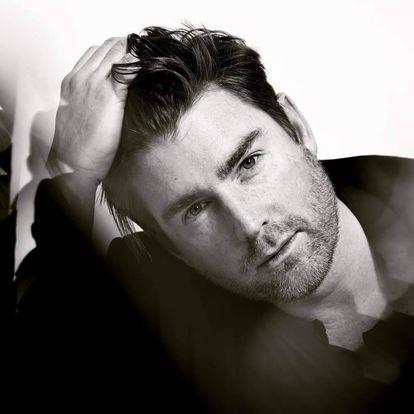
Leveraging survival instincts in business and life to achieve success
Born in Durban, South Africa, Peter Meyer grew up among wild animals on a game reserve created by his father, where he lived adventures like no other - from learning to swim in rivers and riding elephants, to walking among the wild and facing dangerous encounters.
 Now an accomplished model, actor, and author of international best-selling book ‘The Boy from the Wild’, here Peter discusses the top lessons all business leaders can learn from his unconventional upbringing, which paved his way to becoming a celebrated writer and respected entrepreneur, and how to leverage survival instincts in business and life to achieve success.
Now an accomplished model, actor, and author of international best-selling book ‘The Boy from the Wild’, here Peter discusses the top lessons all business leaders can learn from his unconventional upbringing, which paved his way to becoming a celebrated writer and respected entrepreneur, and how to leverage survival instincts in business and life to achieve success.
What was it like growing up on a game reserve and how did this shape your entrepreneurial spirit?
“It was beyond incredible and something truly unique. As a young boy, being surrounded by beauty, nature, wild animals, danger, excitement and so much more was very special.
“It shaped me in many ways and taught me about adapting to environments, being aware of my surroundings, dangers, areas to explore and areas to avoid.
“Knowing our competition by visiting other game reserves was also very interesting and taught me a lot about respect far beyond just the respect of our own reserve.
“I learnt a lot about independence and survival and the importance of being ready for whatever may be round the corner. You would be amazed how much living in that environment can develop a business-minded approach and shape your inner entrepreneur.”
Your business background is very diverse. Can you tell us a bit about your journey and what has led you to where you are today?
“Growing up on a nature reserve, I was exposed to the world of hospitality from a young age. My father then sent me to Switzerland to learn Swiss hotel management for three years and take what I had learnt to the next level.
“This led me to a life in hotels and resorts which really allowed my people skills to come to fruition. It gave me the opportunity to live and work in about nine different countries, while travelling to so many more, and gave me experience of many difference cultures, business ethics, styles of management and more independence and responsibilities.
“It was when my father passed that I eventually changed careers and explored film, both in front of and behind the camera. This led me to launch my business, The Meyer Studios, which is a photography and videography business with a stunning studio.
“To add to the mix, I still keep one foot in the door with hotels and hospitality as a consultant, where I lecture for a Swiss hospitality university part time. It’s a great way to give back and support future students getting into the industry.”
Having had such an unconventional upbringing, did you have to adapt to fit into the business world?
“Not at all. Although I was living in the world we worked in as a family I still had the freedom to learn and explore. My parents ran the reserve, but my father was also an incredibly successful businessman in his own right.
“My diverse upbringing gave me the perfect start to adapt to any real-life scenario, be it in the business world or something else.”
What are the top lessons you learned growing up that you have carried into your life as an entrepreneur?
“Growing up, I learnt a lot of important lessons in patience, resilience, failure, success and survival. Respect was also a big one. When you’re in the wild, the beauty is inspiring, but there is just as much danger and you have to be respectful to your surroundings - animals, the landscape, plants and even the weather.
“Adapting is crucial, too, as you never know what situation you’re going to find yourself in. Just like life in general, the wild is ever-changing, and you have to know how to adjust.
“The other big lesson is passion. Your environment and what you do in life has to be built on passion, as that ultimately fuels your energy and your desire to succeed.”
Growing up in the wild, survival instincts were crucial. How do these apply to the business world and why are they so important in achieving success?
“Learning to survive can be a sad part of life but is so crucial, especially in the business world. At the game reserve, I faced many dangers, not only with animals, but also the weather with flash floods, bush fires, and not to mention security threats.
“It taught me resilience, which is so important in business, where you have to be adaptive and willing to change to survive. My father also had to rebuild on many different occasions throughout his career and that taught me some valuable lessons, too.”
How can business owners leverage their survival instincts for long-term growth and success?
“Survival comes with facing fears, change, failure and knowing how to be strategic in the moment to create long-term growth. It’s knowing not to be greedy or impatient.
“It’s also about being aware of others who are relying on you and your decisions to survive, and how to act accordingly in the interest of all parties. Crucially, you need to recognise what you have, keep hold of it, and know how to build on it.”
Can you give any examples of adversities you have faced in business where you have had to fight to survive?
“Starting a business during Covid-19 was one of the hardest challenges I’ve faced, but the space and location on offer was too good to let go of. I had to know how to work within the ever-changing laws surrounding the pandemic, as well as the financial support provided.
“This meant I had to know where to cut costs without cutting my team. I had to learn when to say no and this sometimes meant putting my morals before taking revenue. I had to cut back on what I wanted and focus more on what I needed, and I had to prioritise my team massively so that they wouldn’t lose out. That was one of the hardest things I have been through.”
What advice would you give to startup owners struggling to survive in the current economic climate?
“Having a strong business plan is key. Have everything covered and multiple plans, including a “backup” in case things go wrong.
“Hire the right team - quality over quantity is key. Know when to turn the “tap” on and off, and always have your finances in order.
“The expression “it takes money to make money” is so true but know when to spend and where. Do your research and some good, thorough competitive analysis. Learn from others and hide your pride. Ego is always a loss at any time, not just during a tough economic climate.”
You founded your photography studio, The Meyer Studios, in 2021 just after the Coronavirus pandemic. What were the biggest challenges you faced when launching the business?
“I set up The Meyer Studios just before the second lockdown, and I took on the business not knowing if it would continue - what a tough period.
“I was faced with so many challenges and I was on a shoestring of finances to survive. I had to adjust, and I even moved out of where I was living to cut my costs as I believed in my business and the sacrifices needed.
“The main obstacle was potentially not having any clients during the lockdown but, luckily, the second lockdown restrictions were slightly more flexible so we could be open to the entertainment industry but not the general public.
“I had to adjust and work accordingly, so I marketed with companies on a small budget, and I worked for free to build exposure and credibility for the brand.”
Other than leveraging their survival instincts, what should startup owners focus on to thrive in 2024?
“Have a good product or service that your target market wants or needs. Have the right location, be it a physical store or online, as you need to be visible to your potential clients.
“Be prepared for anything – a pandemic, economic crash or even a war. Plan for the unknown and identify the gaps in the market where you can best utilise your business ideas to succeed. Be patient – slow is still the fastest way forward in growth.”

